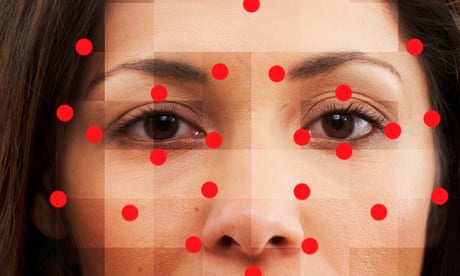Facial recognition could transform policing in same way as DNA, says Met chief
Sir Mark Rowley says technology could help catch wanted criminals, but rights campaigners warn of privacy violations
Britain’s most senior police officer has predicted that facial recognition technology will transform criminal investigations as much as DNA testing has done, a prospect described as dystopian byhuman rights campaigners .
In an apparent reference to the recapture of Daniel Khalife, the terrorism suspect who escaped HMP Wandsworth, Sir Mark Rowley, the Metropolitan police commissioner, said: “We’ve also shown recently that live facial recognition is massively effective at picking out wanted offenders from crowds of people.”
Speaking at an event to mark his first year in the post, Rowley added: “The next step is more exciting: retroactively using facial recognition to identify unknown suspects from CCTV images is showing immense potential.
“The results that we’re getting are beyond what I expected and I think are going to transform investigative work, potentially, in the way that DNA transformed investigative work 30 years ago.”
The campaign group Liberty said Rowley’s comments would have a chilling effect on the right to protest.
Katy Watts, one of its lawyers, said: “We all have the right to go about our lives freely, without being scanned and monitored, but expanding the use of facial recognition will invade our privacy and violate our rights.”
She added: “This dystopian technology can be used to subject people existing in public to intrusive surveillance. Retrospective facial recognition can be used to scan people caught on CCTV or on mobile phone footage at protests – meaning anyone standing up for what they believe in could have their sensitive personal data recorded and monitored.”
Silkie Carlo, the director of Big Brother Watch, said that without the strongest safeguards, facial recognition technology threatened to turn the UK into a surveillance state.
“It can absolutely be as intrusive as DNA, which is why it’s so concerning that the Met is using it to scan hundreds of thousands of innocent Londoners, often with dangerously inaccurate results,” she said.
“Just as the emergence of DNA led to robust laws that balance and limit powers on its use in law enforcement and trials, we need a democratic, lawful approach to the role of facial biometrics in Britain, but so far there hasn’t even been a parliamentary debate on it.”
She added: “We cannot have police making up the rules on such a powerful surveillance technology as they go along, nor monitoring the public with live facial recognition cameras which are at the most invasive, extreme end of the spectrum.”
Referring to a court of appeal ruling that the use of facial recognition technology breached privacy rights and broke equalities law, Watts added: “A court has already ruled once that the use of facial recognition technology breached our fundamental rights. Instead of allowing the police to expand the ways they use it, the government should be banning its use.”
In a speech to the right-leaning Policy Exchange thinktank, Rowely suggested the use of new technology, such as facial recognition, was necessary to make up for cuts in police funding and would help tackle the greater complexity of crimes.
“We spend less per capita on policing than many other western countries,” he said. “I have 28% less to spend on policing London in real terms per capita than we had a decade ago.
“We have also stretched ourselves from policing that 30 years ago focused simply on the public space to one that increasingly, and rightly, invests in tackling those predatory crimes that often take place in private, like rape and child abuse and domestic abuse. And of course we’re struggling to cover the ground presented by the online threats of fraud.”
He added: “Success in such a landscape with constrained resources requires real precision. That’s the reason we’re using data – for that precision to have the maximum effect with a minimum resource.”
Asked about changes to the Public Order Act to increase police powers to deal with disruptive protests, such as those by Just Stop Oil, Rowley said: “We’ve seen with the JSO protests that once the law changed, our response was able to change much more swiftly.”
Rowley also called for changes to the criminal justice system to cut the time police officers spend preparing legal cases.
“It now takes five times more work to get a case to court for the police and CPS as it did 20 years ago. The complex legal duties of disclosure and redaction have been pushed to the front end of the system, slowing down justice and creating nugatory work for officers. In other jurisdictions, prosecutors do most of this work. If you make a system more costly and bureaucratic, it will achieve less.”
He added: “Criminal justice reform is overdue and the effect of that will be to let the police police.”





No comments:
Post a Comment